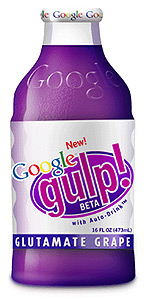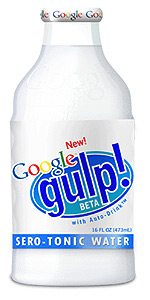Some what I agreed with the following author her opinions.
However, my advise to all is still the same old golden Mantra!!
We Are What We Ate!!
As the old Chinese Guru Said:
Illness is from What is going into the Mouth.
Trouble is From What is Out from The Mouth!!
8 Things Your Doctor Won't Tell You
By Kate Dailey Rodale
Before the feds brought him down in 1996, Edwin Kokes had a pretty good racket. Mr. Kokes convinced people that he was, in fact, Dr. Kokes and had cured thousands of AIDS and cancer patients. He encouraged folks to stop their medications and buy his potions instead, including one called M-Bone. Its special ingredient? Sulfuric acid.
Even if your doctor isn't intentionally out to mislead you, we'll bet a box of tongue depressors that he is keeping you in the dark about certain things. These are secrets that can save you money, time, or even your life. Here's what you'll never hear—unless you know what to ask.
1. "You don't need this test."
To cover their own butts, doctors sometimes take a needless trip up yours. A nationwide sample of "surveillance" colonoscopies—follow-up procedures done after polyps are removed—found that up to 50 percent of doctors recommended these tests unnecessarily. This better-safe-than-sorry mindset keeps docs safe against lawsuits, and isn't limited to colonoscopies.
Get the truth: Watch out for the most overused procedures: MRIs and CT scans, echocardiograms, and stress tests all scored high in a survey of health insurers. "When your doctor does make a recommendation that seems aggressive, ask why, and where you fit in the assigned guidelines," says Pauline Mysliwiec, M.D., author of the colonoscopy study. For a list of the most common testing guidelines for men, click here.
2. "This WILL cost You."
From deductibles to drugs, chances are your doctor visit will run more than insurance will pay. But while a Journal of the American Medical Association study showed that 79 percent of doctors think it's important to tell patients about these costs, only 35 percent actually do inform them. Their excuse? Many physicians say they're under time pressures and don't know how much patients are spending on out-of-pocket costs, says G. Caleb Alexander, M.D., the study author.
Get the truth: Tell 'em where it hurts—in your wallet. If you mention medical expenses, most doctors will work with you to lower them, says Dr. Alexander. For instance, they can prescribe a 3-month instead of a 1-month supply of a drug to help you save on the co-pay. Or they can look at the prescriptions you take and services you receive, such as physical therapy, and reevaluate which can be used on an as-needed basis.
3. "This pill is basically a placebo."
Not the sugar-filled kind, but equally ineffective. "Forty percent of patients with colds who go to a doctor get an antibiotic," says Howard Brody, M.D., Ph.D., director of the Center for Ethics and Humanities in the Life Sciences at Michigan State University. "Doctors can spend 15 minutes explaining why the patient doesn't need medicine or take 1 minute to write a prescription."
Get the truth: Tell your doctor you hope your problem isn't so serious that it calls for medication. This lets him know you're not looking for a bottle of pills, and it may make him more likely to discuss other treatments, says Dr. Brody. And watch out if your diagnosis is sinusitis. Because it can be either bacterial or viral in nature, sinusitis is one of the top conditions for which antibiotics are unnecessarily prescribed. Ask for a C-reactive protein rapid test—a raised CRP level signals a bacterial infection. Danish researchers recently showed that doctors who gave the test to sinusitis patients prescribed 20 percent fewer antibiotics than their peers who skipped the test.
4. "I'm trained to fix problems, not prevent them."
Whoever first said "An apple a day keeps the doctor away" probably wasn't an M.D. A study published in the American Journal of Clinical Nutrition found that only one in six doctors preaches to patients about nutrition's role in preventing disease, while Colorado researchers found that just 28 percent of doctors mention exercise. "We tend to be more pharmacologically oriented because of our M.D. training," says Mark Houston, M.D., author of What Your Doctor May Not Tell You about Hypertension.
Get the truth: If your doctor doesn't have answers about nutrition or exercise, he knows someone who does. Many general practitioners collaborate with nutritionists and trainers who help treat patients with lifestyle-influenced health problems, such as type-2 diabetes. Ask for a referral to discuss basic preventive health strategies.
5. "Don't Join THIS clinical trial."
Doctors can make $5,000 for each patient they recruit to a clinical trial, so you might receive advice colored by the promise of a kickback. That's scary, especially since clinical trials are crapshoots. "The drug is being tested precisely because we don't know how it will work," says Steven Joffe, M.D., a researcher at the Dana Farber Cancer Institute. Plus, you could end up with a placebo and not see any benefits.
Get the truth: Start by asking your doctor to explain the proven benefits of existing medications versus the potential advantages of the trial drug. Next, find out more about the study in question at clinicaltrials.gov, a clearinghouse for information on trials. Go ahead and e-mail the organizer of the trial and ask if the organization is offering physicians any recruiting "incentives." If so, mention this to your doctor and ask if he still stands by his recommendation.
6. "There's a cheaper pill."
If a brand-name pill costs $1.50 and an equally effective generic costs 5 cents, why would anyone prescribe the pill with the $1.45 markup? "Most doctors aren't prescribing generic medicines because there are rewards to be had from the pharmaceutical industry," says Evan Levine, M.D., author of What Your Doctor Won't (or Can't) Tell You. Federal law prohibits companies from blatantly compensating doctors, but there are loopholes. "They take the doctors to an expensive dinner or a strip club and bill it as a 'teaching' seminar," says Dr. Levine.
Get the truth: Ask and you shall receive. Doctors will acquiesce to patients who demand a generic drug (if one is available; about 40 percent of drugs on the market have generics). Don't worry about quality: Generics have to have the same potency and active ingredients as their brand-name brothers. Note: Beware of free samples. While they can save you a few bucks in the short term, they can also get you started on an expensive drug with no generic equivalent.
7. "I'll push surgery, even if that's not the best treatment."
"In many doctors' value systems, surgery is the default," says Christopher Meyers, Ph.D., head of the Kegley Institute of Ethics at California State University. But research indicates that surgery often isn't the best option. A Baylor College of Medicine study showed that chronic knee pain didn't change after surgery, while another study found that taking a wait-and-see strategy with hernias may be as effective as going under the knife.
Get the truth: "You should always ask what the alternatives are to surgery, including an approach that most physicians feel uncomfortable offering: to do nothing," says Meyers. If your doc is still scalpel-happy, get a second opinion from a doctor of osteopathy. "These doctors take a more holistic approach and are familiar with newer literature that promotes different strategies," says Dr. Houston.
8. "I've been disciplined by my state's medical board."
Doctors won't post signs on their office doors to inform you of their disciplinary infractions or the number of malpractice claims they've paid. But you need to know.
Get the truth: Go to www.docboard.org—a site with a searchable database from 15 state medical boards and links to the databases of the other 36 boards. If a practitioner you like has been reprimanded, ask him about it. "If a doctor refuses to answer questions about his background or about whether or not patients have sued him, you should run," says Dan Fee, a spokesman for Citizens for Fairness, a coalition of patients'-rights groups.
MSN Health & Fitness - 8 Things Your Doctor Won't Tell You








